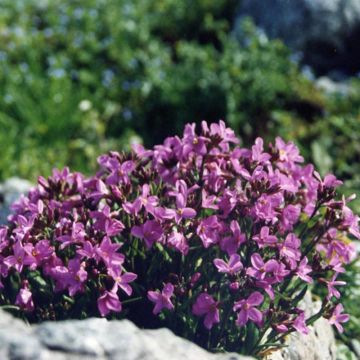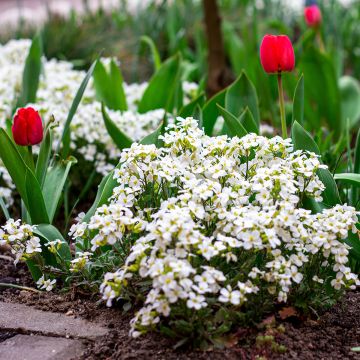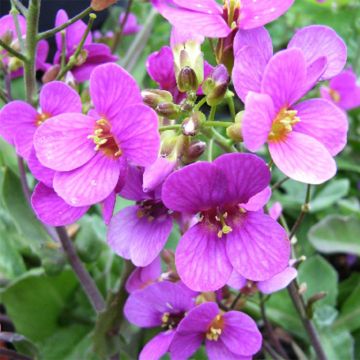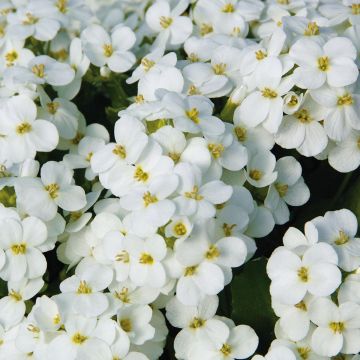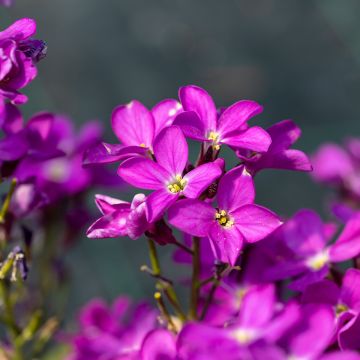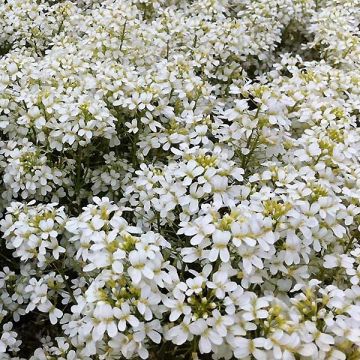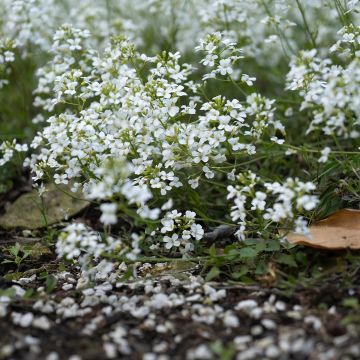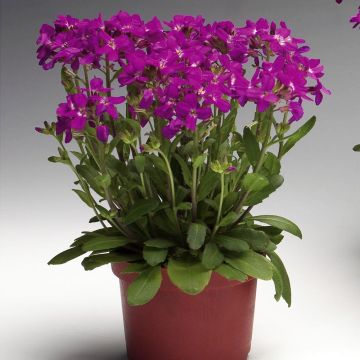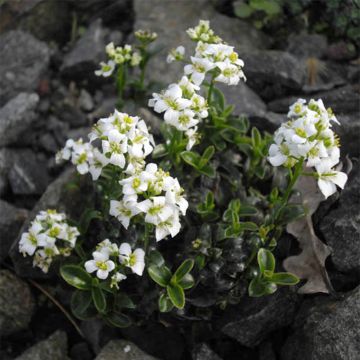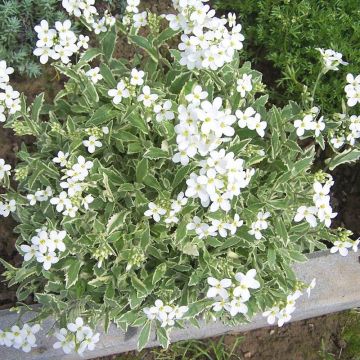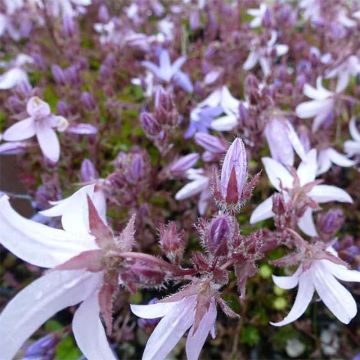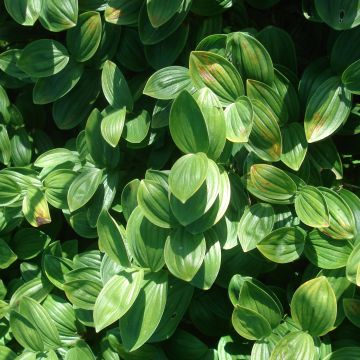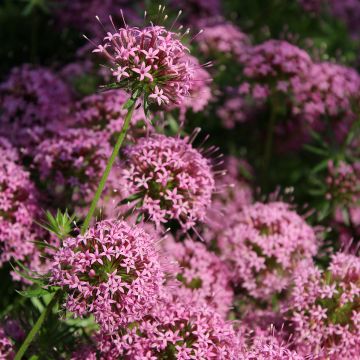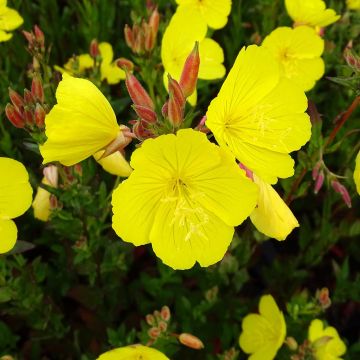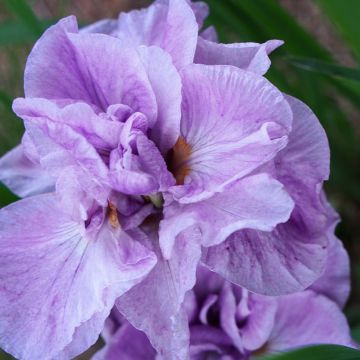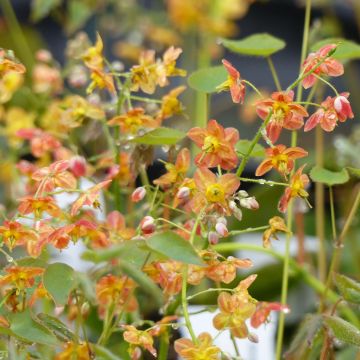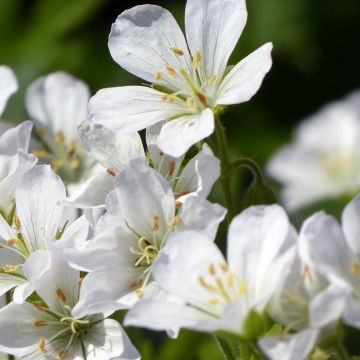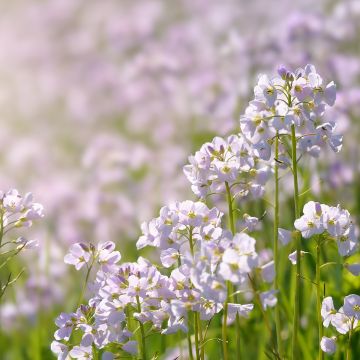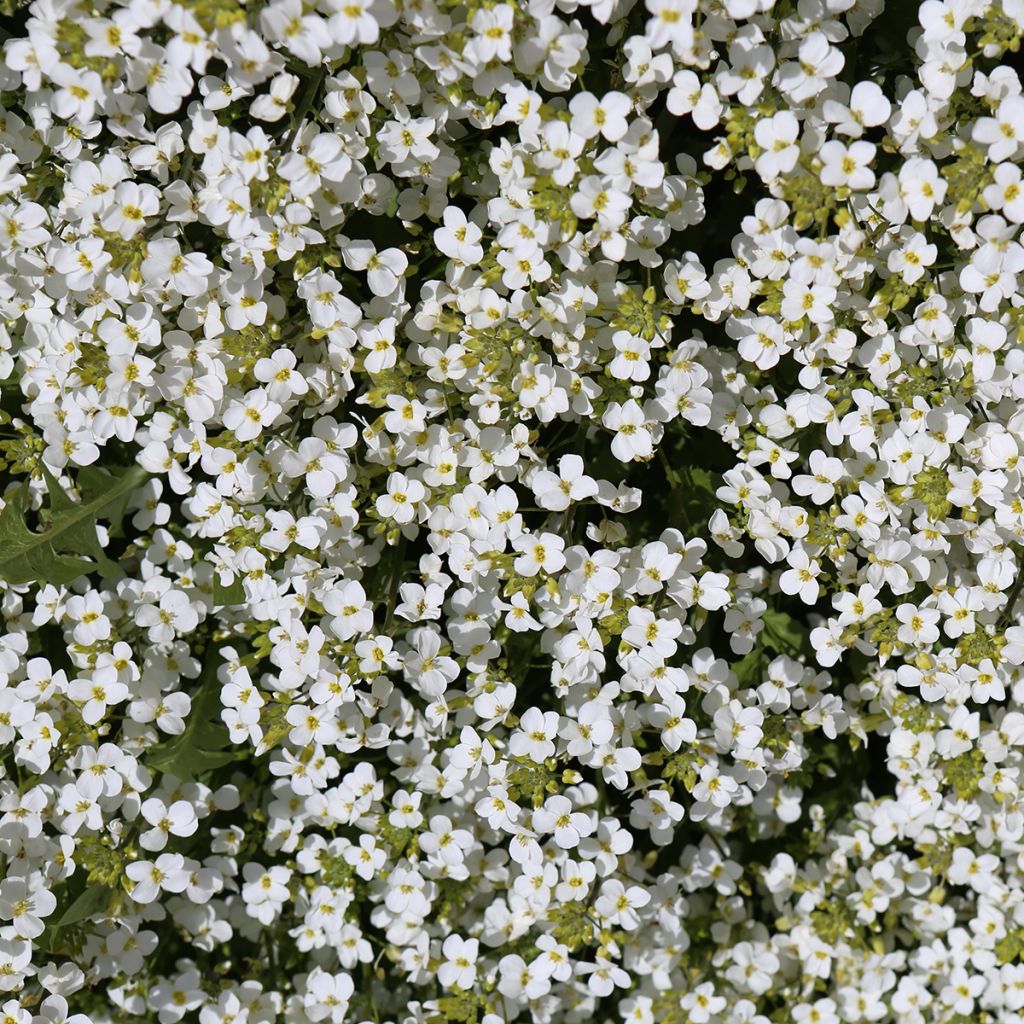

Arabis alpina subsp. caucasica Snowcap
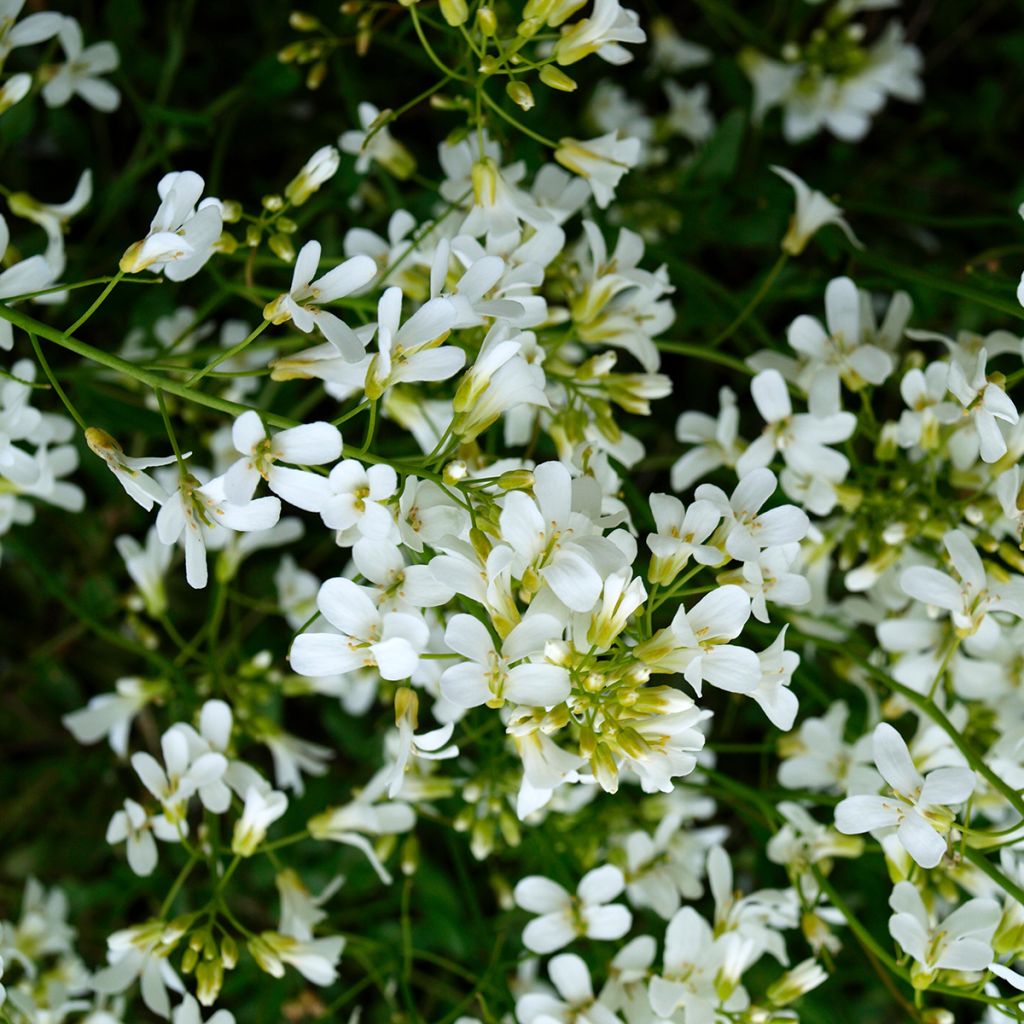

Arabis alpina subsp. caucasica Snowcap
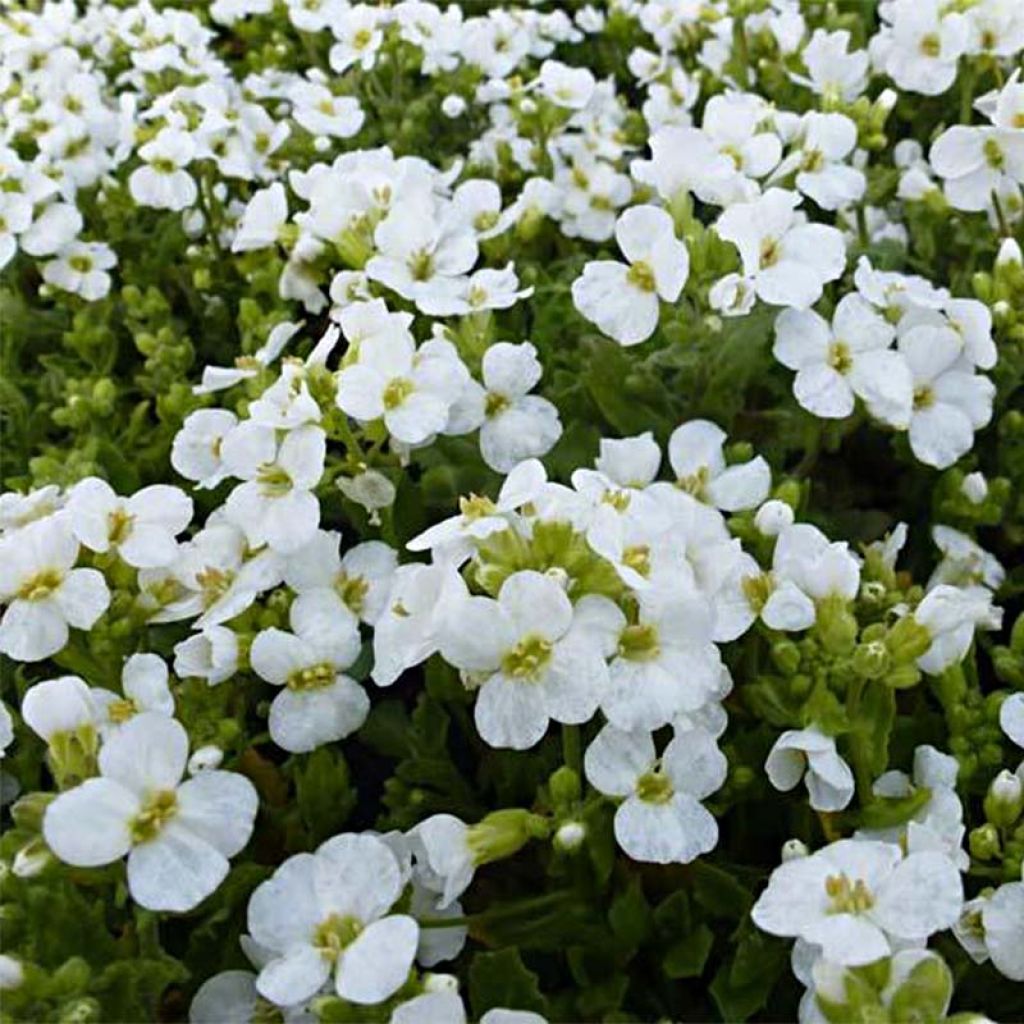

Arabis alpina subsp. caucasica Snowcap
Arabis alpina subsp. caucasica Snowcap
Arabis caucasica Snowcap
Mountain Rock Cress, Alpine Rock Cress, Alpine Rockcress, Caucasus Rockcress, Wall Rock Cress
This item cannot be shipped to the selected country
Delivery charge from €5.90
Delivery charge from €5.90
More information
Delivery charge from €5.90
Delivery charge from €5.90
More information
Schedule delivery date,
and select date in basket
This plant carries a 12 months recovery warranty
More information
We guarantee the quality of our plants for a full growing cycle, and will replace at our expense any plant that fails to recover under normal climatic and planting conditions.
From €5.90 for pickup delivery and €6.90 for home delivery
Express home delivery from €8.90.
From €5.90 for pickup delivery and €6.90 for home delivery
Express home delivery from €8.90.
Does this plant fit my garden?
Set up your Plantfit profile →
Description
The 'Arabis caucasica 'Snowcap' is a new variety of rock cress, particularly floriferous, with a very compact growth that disappears in spring under many small pure white flowers, forming a carpet of snow in flower beds. This perennial plant forms a very effective ground cover tapestry to fight against weeds. It is particularly decorative with its tiny green foliage that turns decorative grey throughout the year. Easy to grow in well-drained soil, it is perfect for covering walls, climbing slopes, covering the base of hedges, dressing the base of plants in pots, or bordering gravel paths.
The Arabis alpina subsp. caucasica belongs to the Brassicaceae family. This very hardy plant is native to temperate regions of the Northern Hemisphere. 'Snowcap', sometimes called Arabis caucasica 'Scneehaube', was recently selected in Germany for its dense, low habit and excellent floribundity. It is an evergreen and spreading perennial that spreads by rhizomes, and its growth is relatively slow. It forms a dense ground cover of 10-15 cm (4-6in) in height, with a minimum spread of 35 cm (14in), theoretically unlimited. The flowering takes place from April to June, depending on the climate. Its produces many small flowers, 1 cm (1in) in diameter, slightly fragrant, are gathered in generous clusters. They bloom above the green to grey-green foliage with a plush appearance. The leaves form compact rosettes; they are oval, serrated and measure 2 cm (1in) long.
Perfect rockery plants, one of the most robust rock cresses, also make excellent ground covers along the edges of flower beds, in paving, as a topping for walls, on slopes, etc. Arabis caucasica 'Snowcap' is a beautiful plant that can cover a large area in just a few years and help prevent weed growth. It's great for covering the base of shrubs or hedges, even in partial shade. However, it's not recommended to plant it in a well-maintained rockery as it may harm other delicate plants. This plant is very easy to grow, much like ivy, and will flower every year alongside tulips and other spring bulbs. It has a long lifespan and requires little maintenance.
Arabis alpina subsp. caucasica Snowcap in pictures
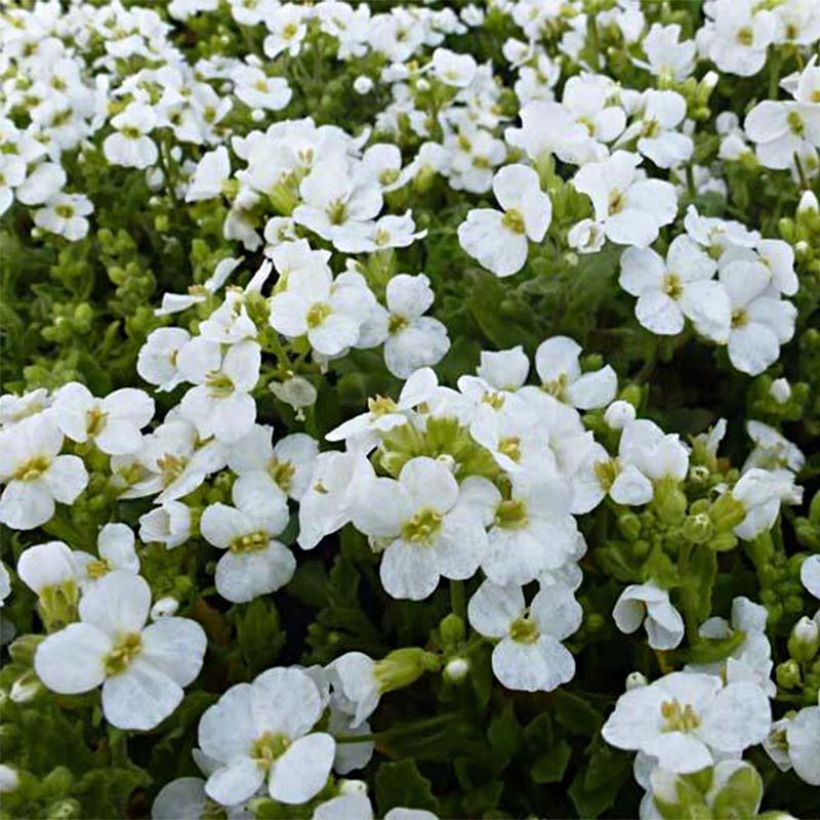

Flowering
Foliage
Plant habit
Botanical data
Arabis
caucasica
Snowcap
Brassicaceae
Mountain Rock Cress, Alpine Rock Cress, Alpine Rockcress, Caucasus Rockcress, Wall Rock Cress
Schneehaube'
Cultivar or hybrid
Other Arabis
Planting and care
Arabis are hardy plants that grow best in sunny locations with well-drained soil, including rocky or gravelly terrain. They can be planted from spring to autumn and require regular watering to establish themselves. During this time, it is important to protect them from neighbouring plants or weeds that may disturb their growth. The establishment process may take some time but ultimately results in a durable plant that is easy to grow and has no known enemies in our gardens. After flowering, trim the shrub with shears to encourage branching and denser growth. Remember that Arabis prefer slightly acidic, neutral, or even limestone-based soil.
Planting period
Intended location
Care
Spring flowering perennials
Haven't found what you were looking for?
Hardiness is the lowest winter temperature a plant can endure without suffering serious damage or even dying. However, hardiness is affected by location (a sheltered area, such as a patio), protection (winter cover) and soil type (hardiness is improved by well-drained soil).

Photo Sharing Terms & Conditions
In order to encourage gardeners to interact and share their experiences, Promesse de fleurs offers various media enabling content to be uploaded onto its Site - in particular via the ‘Photo sharing’ module.
The User agrees to refrain from:
- Posting any content that is illegal, prejudicial, insulting, racist, inciteful to hatred, revisionist, contrary to public decency, that infringes on privacy or on the privacy rights of third parties, in particular the publicity rights of persons and goods, intellectual property rights, or the right to privacy.
- Submitting content on behalf of a third party;
- Impersonate the identity of a third party and/or publish any personal information about a third party;
In general, the User undertakes to refrain from any unethical behaviour.
All Content (in particular text, comments, files, images, photos, videos, creative works, etc.), which may be subject to property or intellectual property rights, image or other private rights, shall remain the property of the User, subject to the limited rights granted by the terms of the licence granted by Promesse de fleurs as stated below. Users are at liberty to publish or not to publish such Content on the Site, notably via the ‘Photo Sharing’ facility, and accept that this Content shall be made public and freely accessible, notably on the Internet.
Users further acknowledge, undertake to have ,and guarantee that they hold all necessary rights and permissions to publish such material on the Site, in particular with regard to the legislation in force pertaining to any privacy, property, intellectual property, image, or contractual rights, or rights of any other nature. By publishing such Content on the Site, Users acknowledge accepting full liability as publishers of the Content within the meaning of the law, and grant Promesse de fleurs, free of charge, an inclusive, worldwide licence for the said Content for the entire duration of its publication, including all reproduction, representation, up/downloading, displaying, performing, transmission, and storage rights.
Users also grant permission for their name to be linked to the Content and accept that this link may not always be made available.
By engaging in posting material, Users consent to their Content becoming automatically accessible on the Internet, in particular on other sites and/or blogs and/or web pages of the Promesse de fleurs site, including in particular social pages and the Promesse de fleurs catalogue.
Users may secure the removal of entrusted content free of charge by issuing a simple request via our contact form.

































